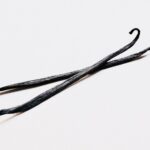Yes, dogs can safely eat sage in moderate amounts. Both fresh and dried sage leaves can be an excellent addition to a dog’s diet. However, owners should be careful about the amount of sage fed to dogs since the herb contains a chemical called thujone, which can cause digestive issues in large doses.

Safe: This food is generally considered safe by the veterinary community. Dogs can eat this food sometimes or in small amounts but contains little to no nutritional value.
| Food Safety | Safe in moderate amounts. |
| Nutritional Value | Sage contains antioxidants that have immense anti-inflammatory and antimicrobial properties. These antioxidants help give the immune system in dogs a boost. |
| Potential Risks | When fed in huge amounts, sage can cause gastrointestinal issues in dogs. |
How Much Sage is Safe for Dogs?
No set amount of sage can be declared safe for dogs. However, a teaspoon of dried sage or a handful of fresh leaves mixed in your dog’s food can provide it with the needed nutritional benefits. Sage is a pungent herb, so adding too much of it can also make your dog’s food unpleasant.
How to Safely Prepare Sage for Your Dog?
Adding sage to your dog’s food can be an excellent way to boost its health. The best way to introduce sage into your dog’s diet is to add a spoonful to regular meals. Adding sage to homemade treats for dogs is also an excellent way to incorporate sage into their diets.
Frequently Asked Questions
-
Apart from the antioxidants, sage also holds a significant amount of fiber. Therefore, the herb can be quite soothing for a dog’s stomach and can be used to treat diarrhea.
-
While dogs can easily eat sage, burning sage around them is not a great idea. The smell from it can be unpleasant and overstimulating to dogs. The smoke from the sage can also cause respiratory issues in dogs.







